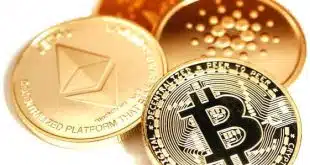Payments 3.0
The Numbers Seldom Tell the Story. Of all the statistics published about payments, none specifically provides an indication of whether or not banks are holding on to their payments franchise. One statistic, however, shapes the debate (or should): The total number of payments made expands no faster than needed to match the expansion of the economy, meaning every payment initiated using a new method is a payment not made via some other method, new or old.
Notably however, almost every payment made by some new method eventually clears and settles through the banking system. Even when Bitcoin is used to purchase from merchants, the payments usually become fiat deposits in a bank account. The volatility in Bitcoin’s value underlines the common sense of converting to dollars in the bank as each payment is made.
Press Releases Matter Even Less. A lot of over-excited high-fiving seems to occur each time a new payment method shows a hockey-stick prediction of the number of payments it will rack up. Two things need to be looked at to see if banks should be concerned: 1) The number of transactions at the top of the hockey stick as a percentage of the roughly 125 billion transactions made annually in the U.S., and 2) whether these transactions are generating enough revenue to make the company profitable.
In most cases, one or the other condition is not satisfied. Either the number of transactions is small—for example Dwolla’s growth target is believed to be around 0.3% of all payments—or the company is not profitable, as illustrated, for example, by Square’s $67 million EBITDA loss for 2103.
Card-Scheme Transactions in High-Tech Clothing. The majority of “new” ways to buy something, either online or in a physical store, end up as MasterCard, Visa, American Express, Discover, or automated clearing house transactions. And they go through a bank.
Apple Pay is a good example. A key part of what had to be put in place for Apple Pay to work was the agreements with major banks to process the payments. E-wallets are simply the same story with even less disguise.
But Banks May Be Losing Something More Important Than Transactions. Most consumers have little to zero interest in tracing how the payment they make by waving their mobile phone or by entering their nonbank payment account number is going to be accomplished technologically or institutionally. They just want to be sure the payment goes through. Some are even surprised when the payment they made using the ostensibly nonbank payment device shows up on their bank statement.
Although payments professionals know “phone checks” and other hybrid payments using the ACH go from a bank to a bank, does the person making the payment know it’s their bank, not the bill collector on the phone, who is getting the payment made in time?
Herein lies a crucial point. Banks may not be losing the transactions, but they are losing their customers’ awareness that their bank is the only reason they could make the transaction in the first place.
If banks’ decades-long devotion of time, effort, and money to build and manage relationship banking is anything but a self-hoax, then people being unaware that most of the new payments they initiate are possible only because two banks stand behind them presents banks with a real problem. How is my bank going to market additional products to me through the conduit of my payments relationship with it if I have no idea that the new type of payments I prefer making are only possible because the payee and I each have an account with our bank?
What matters—and what should be more of a concern to banks than tracking and reacting to all the new payments methods—is how the proliferation of new ways to make payments will pull the rug out from under relationship sales of mortgage refinancings, car loans, or money-management services.
The Message. So the popularity of new nonbank payments methods is indeed a threat to banks in the form of lost relationships. This being the case, shouldn’t some of the profit from relationship sales be credited against the cost of inventing and offering bank-branded new-media payments?
As so often happens with something new, siloed accounting is obscuring the real importance of banks being involved in new payments.
George Warfel • george.warfel@edgardunn.com




